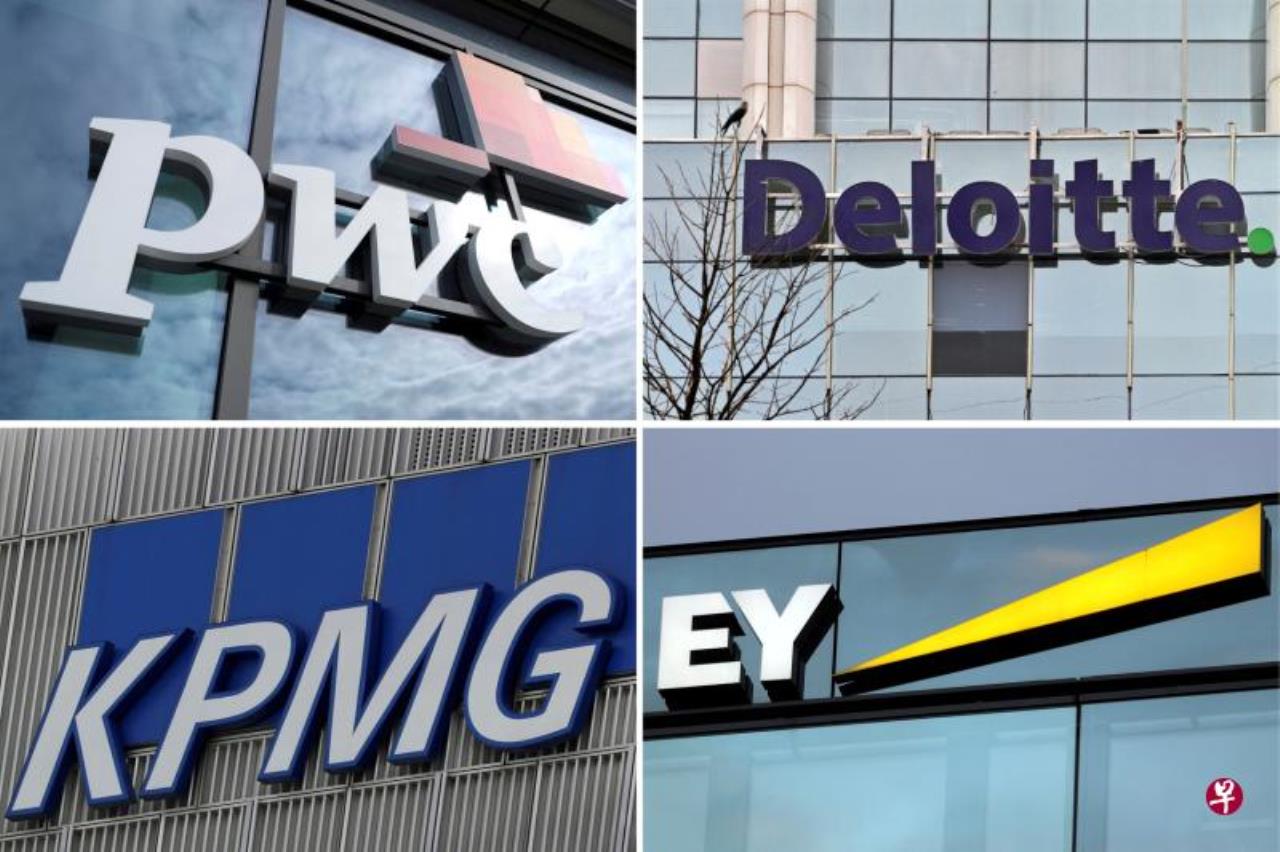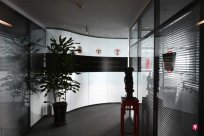
Special
The former dean of the college of Singapore Financial Administration and a visitor to a guest professor at the National University of Singapore predicts that with the exacerbation of the Sino -US confrontation, China will further strengthen financial and data supervision.Accelerating in the field of audit is consistent with the reform of the reform of the Communist Party of China and national institutions this year.
Deloitte auditors Xu Mingming (pseudonym, 29 years old) learned that the group was punished by the Ministry of Finance, and lamented: "It will be difficult for the next three years -without new customers, they may lay off layoffs, and they may lay off layoffs."
The Chinese Ministry of Finance reported last Friday (March 17) that Deloitte, as one of the four major international accounting firms, had serious defects on auditing of Chinese state -owned financial giants Huarong Asset Management Company in the past years.More than 100 million yuan (RMB, about 40.72 million yuan) was fined, Deloitte China was warned by warning, and the Beijing Branch was suspended for three months.
This huge administrative penalty not only directly impacts the revenue of Deloitte's fiscal year. According to the regulations of the Ministry of Finance, it is difficult for it to participate in the audit and bids of state -owned financial enterprises within three years, and new customers will be greatly reduced.
Deloitte issued a statement on the same day to explain the decision to respect and accept the punishment, but the Ministry of Finance's inspection proves that Deloitte and the company accountant "do not have any dishonest behavior" during the audit process, and saidThe relevant financial statements are rewritten information, "the relevant audit report does not need to be corrected."
In Xu Mingming's view, the subtle statement of the wording shows the "grievance" of Deloitte's auditors.She told Lianhe Zaobao that Deloitte's main audit customers include multinational companies and large state -owned enterprises."When we audited the central enterprise at this level of Huarong, we will be warned from time to time that they do not accept reports of problems. If we can't go out, they will change to a firm."
The object of auditing is also the auditors' food and clothing parents, and the contradiction's interest relationship has caused audit work to fall in trouble.Xu Mingming believes that auditors generally face the same challenge, "can't say that Deloitte has no problem, but it is not just Deloitte."In addition, there have been rumors that officials are required to suspend the "four major" services in the past year.
It is said that China promotes state -owned enterprises to gradually suspend international audit services
Bloomberg quoted sources last month, saying that the Chinese government has urged some state -owned enterprises to gradually suspend Deloitte, Ernarous (EY), KPMG, and Puhua Yongdao (PWC (EY), KPMG (KPMG) after the contract expires.) The audit services of these four international accounting firms to ensure national data security and promote the development of the local accounting industry.
Among the Huarong audit storms a month later, Huarong and seven related companies were fined 100,000 yuan, totaling 800,000 yuan.A person who had been an auditor who had been in China for many years at the Chinese accounting firm analyzed the newspaper that although Huarong's fines were far lower than Deloitte, it was already punished under relevant regulations."In terms of auditors, the Ministry of Finance's penalties in the past have also been strong, just because Deloitte's charges are higher and the penalties are more."
According to Huarong financial statements, the Group paid nearly 240 million yuan from 2015 to 2019, with an average of nearly 48 million yuan per year.Lai Xiaomin, the former chairman of Huarong, was dismissed in 2018. The group's delayed 2020 performance loss was 100 billion yuan, while the Ministry of Finance conducted special inspections on Huarong and Deloitte in 2021.
Chen Bo, dean of the Wuhan Optics Valley Institute of Free Trade, pointed out in an interview that audit is an important part of maintaining financial credit. The Ministry of Finance strictly regulates audit institutions and is a necessary measure to ensure the healthy development of the financial industry.Although the penalty of Deloittes has a foreign background, this example alone is not enough to judge whether this is to reduce the actions of foreign audit institutions in China.
Chen Bo said that the Deloitte's punishment incident happened simultaneously with the recent official measures that improved the efficiency of financial supervision, which will inevitably cause market speculation. In fact, the relevant survey was launched two years ago."In addition, if the senior management wants to stop the four major services of state -owned enterprises, as long as the internal instructions are issued, there is no need to make such a corner."
The Huarong audit storm has just passed, and the "four major" will face another challenge -the PCAOB of the US listed company's accounting supervision committee (PCAOB) will soon conduct regular inspections of Chinese stocks.According to Reuters, many offices such as Deloitte, Ernst & Young, and PricewaterhouseCoopers were selected as the object of this inspection.
On the one hand, the Chinese government is alert to data leakage, and on the other hand, the US government's requirements for audits are in place. The audit institutions and enterprises are in dilemma.
The former dean of the Singapore Financial Administration and visiting professor Bai Shizhen, a visiting professor at the National University of Singapore, predicts that with the intensification of the Sino -US confrontation, China will further strengthen financial and data supervision.It is also consistent with the reform direction of the CCP and national institutions this year.
China's official announcement this month announced the reform plan of the CPC Central Committee and the State Institution, announced the establishment of the Central Financial Commission, uniformly led the Central Bank of China and the Securities Regulatory Commission, and the State Administration of Financial Supervision and Administration of the State Council's institutional reform.The official also established the National Data Agency to strengthen the control of data resources.
Bai Shizhen pointed out that a new round of reform has strengthened the CCP's comprehensive leadership in the fields of finance, data, and technology, and highlights that maintaining national security and system stability has become the current focus of administration in Beijing.China's official recent public criticism that Western countries led by the United States to curb China's development in all aspects, it also shows that the above measures are preparing for the United States for a long time.
He said that the financial industry is an independent economic growth engine in Singapore, but it is a supporting industry that serves the real economy in China.In order to maintain economic growth, China will also maintain international connection with international trade. "But in terms of finance, the government is likely to intervene once involved in national security issues to reduce the space for sanctions by the United States.Originally, but if the Chinese audit market is decoupled from the international account, it is regrettable. "



